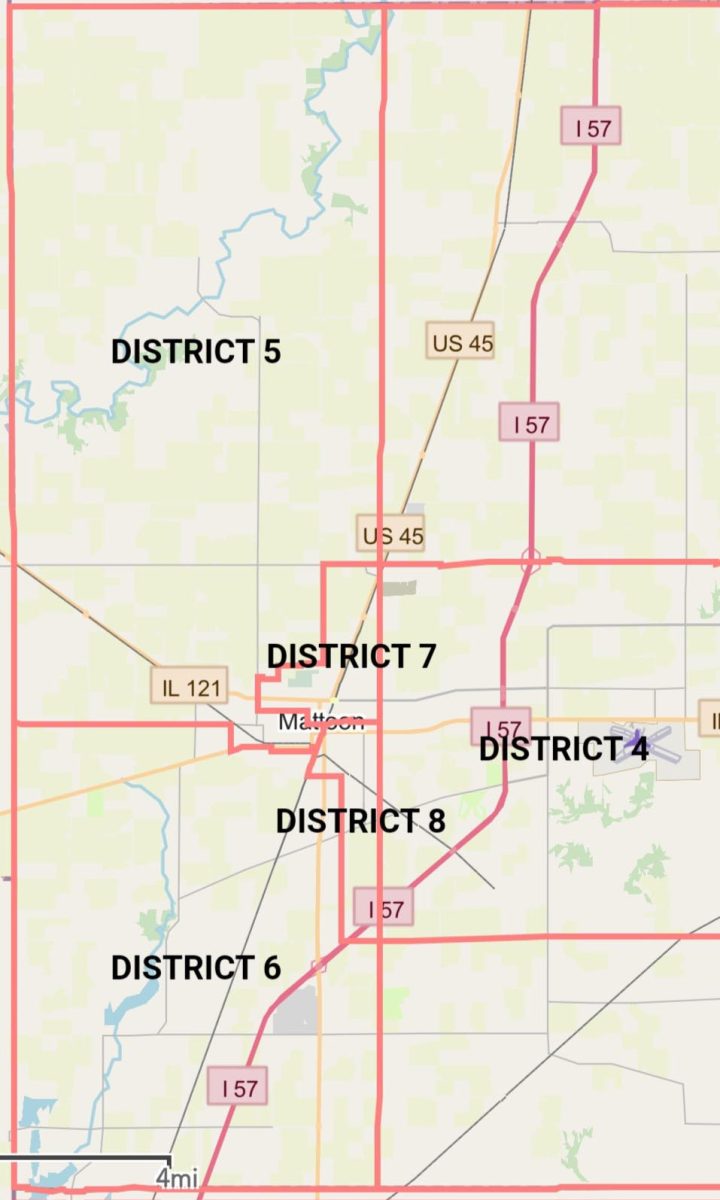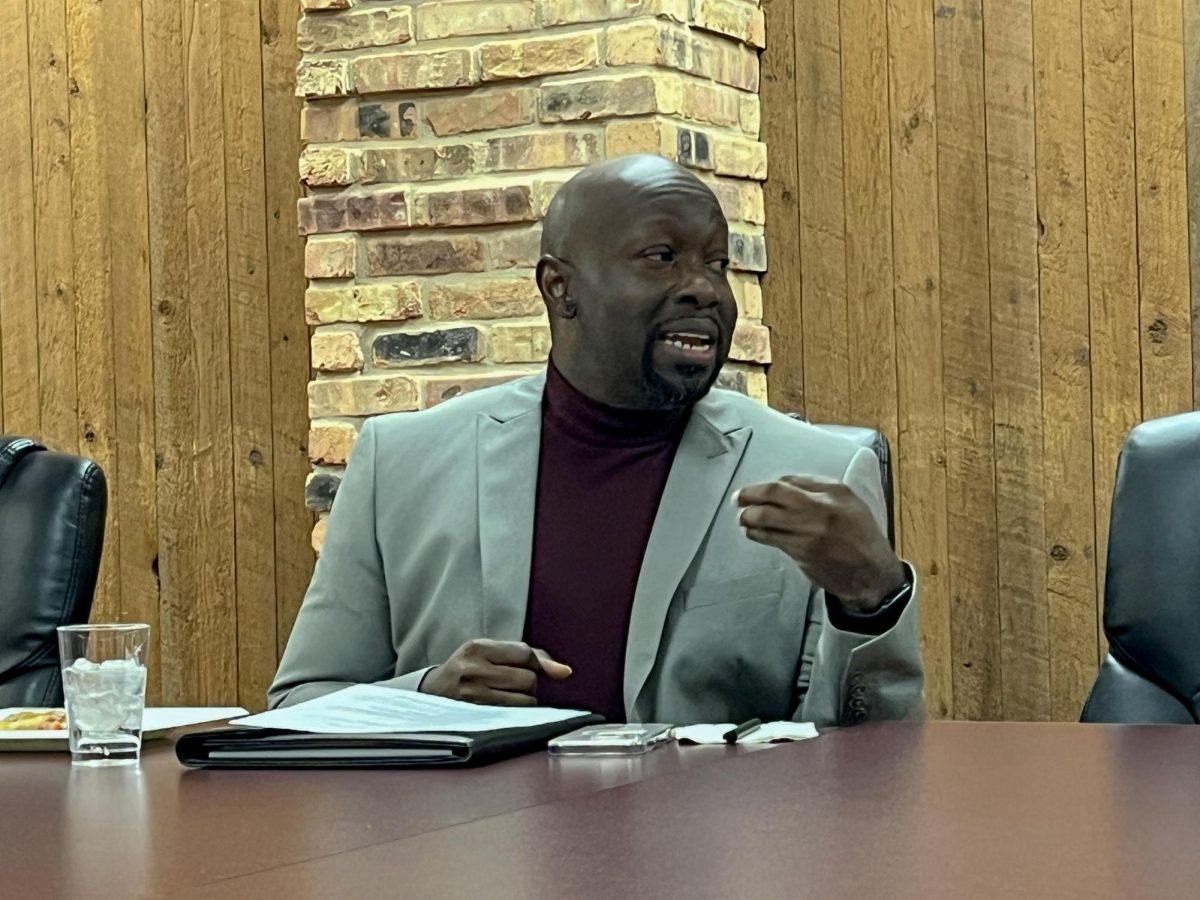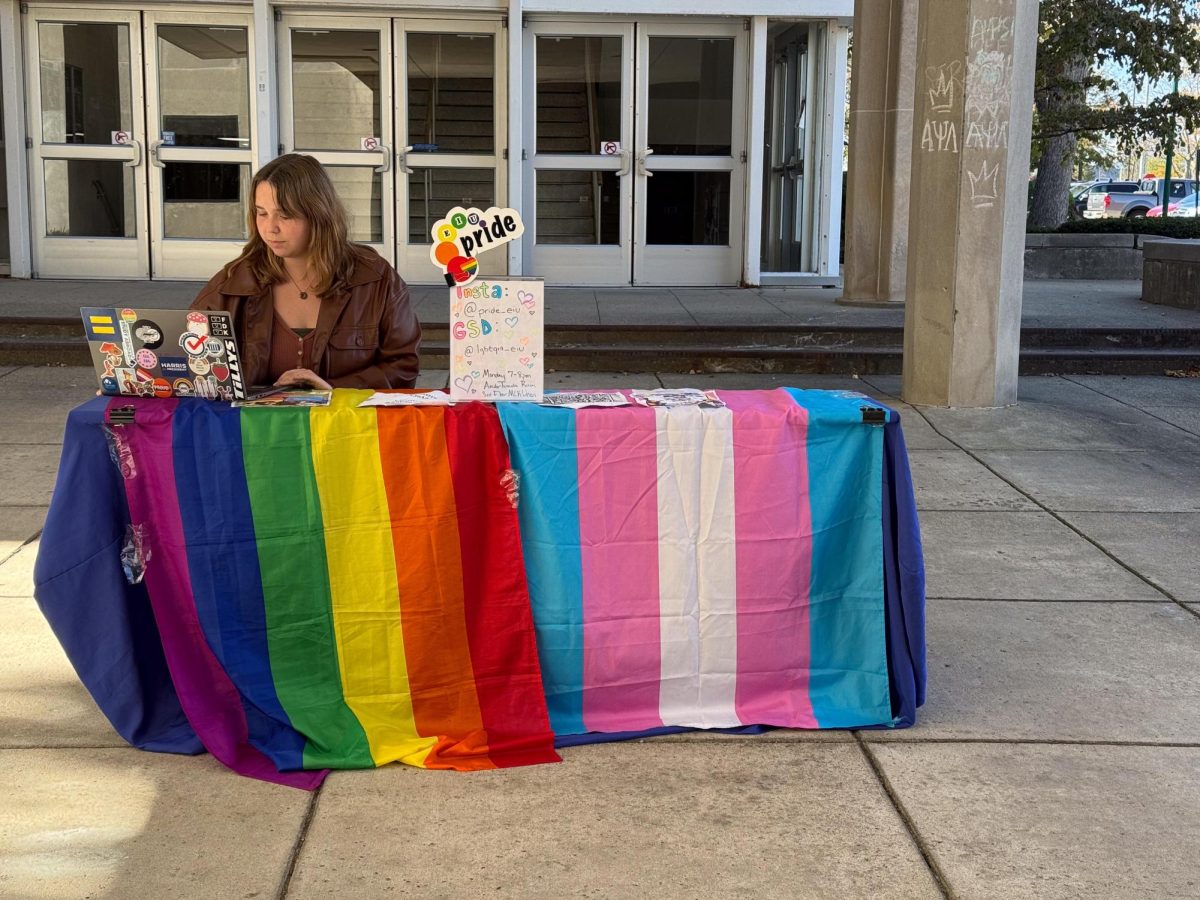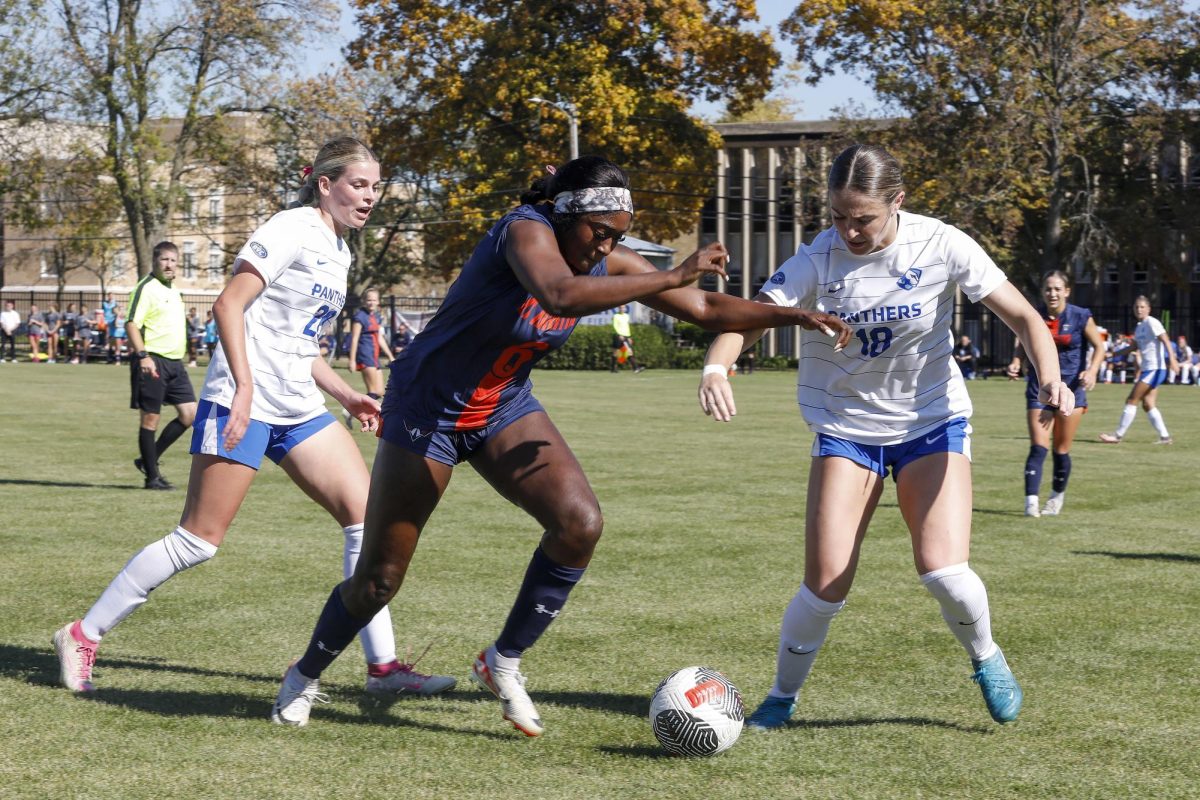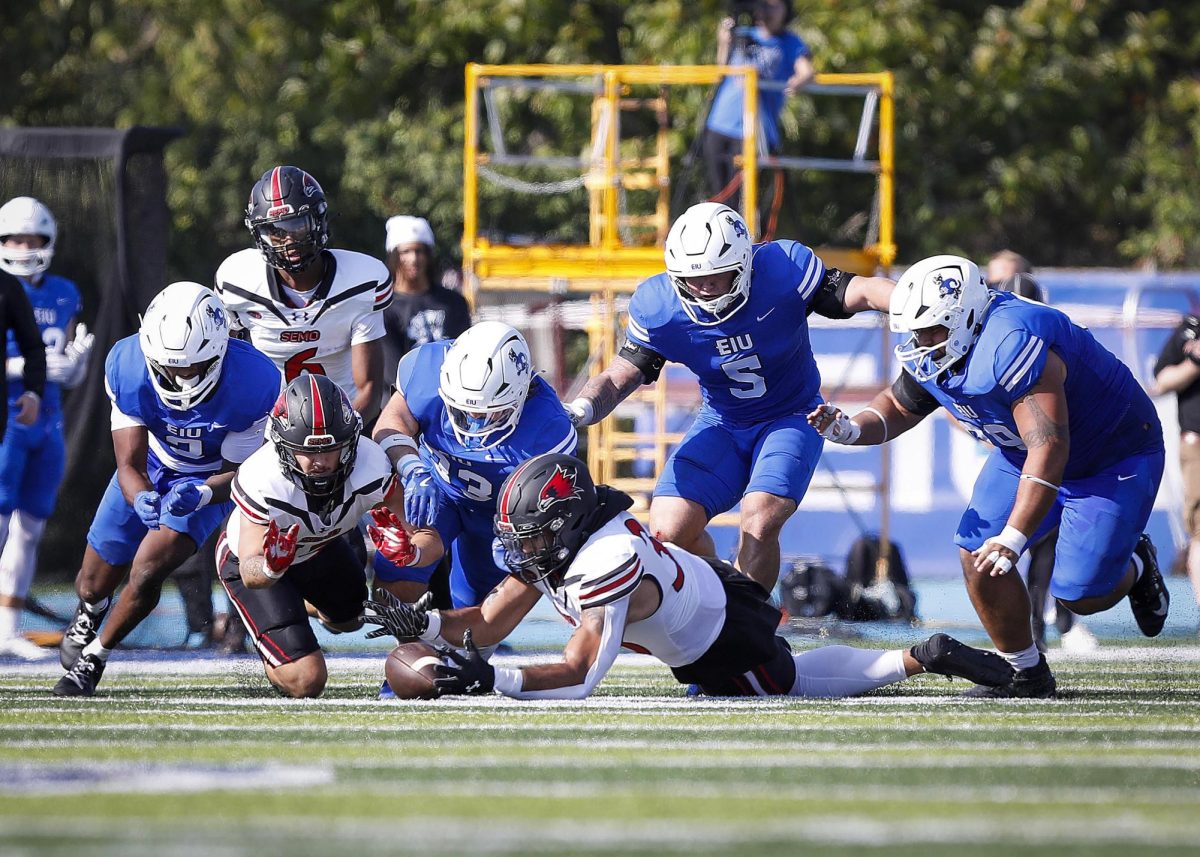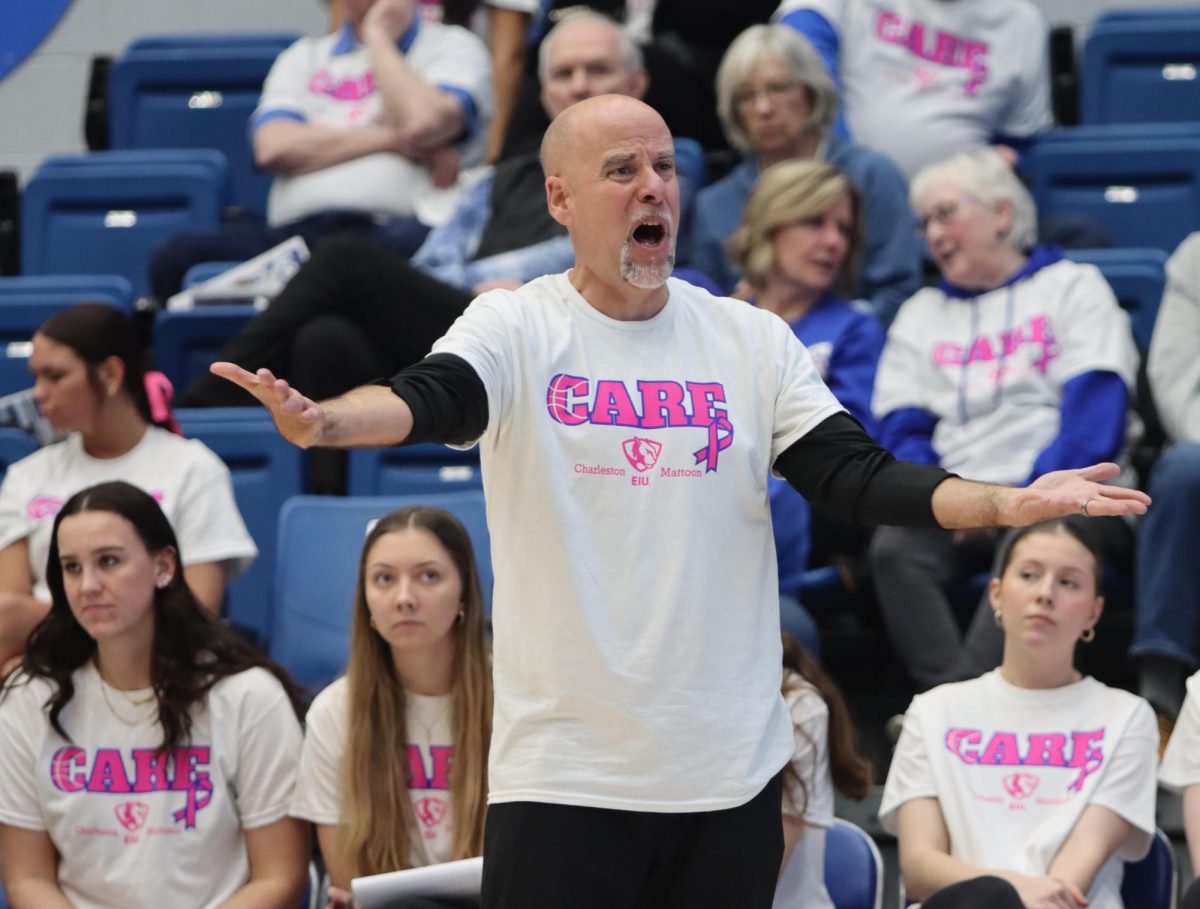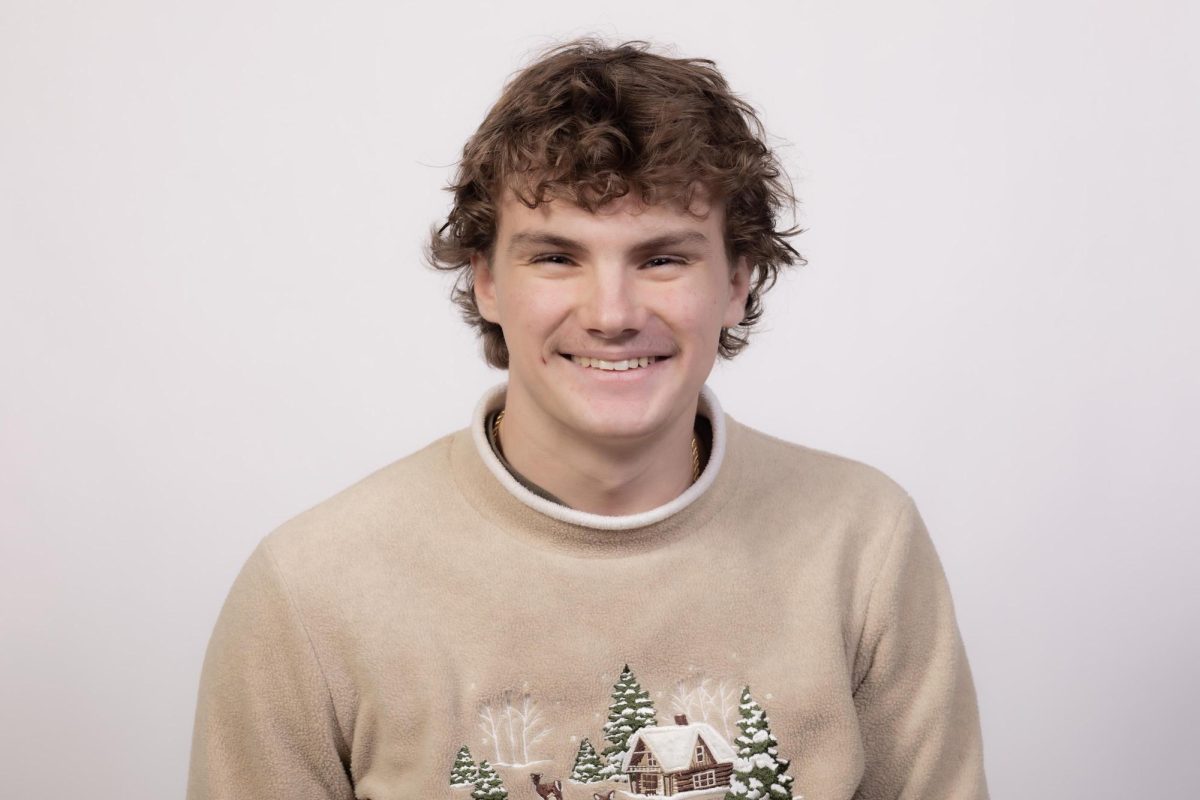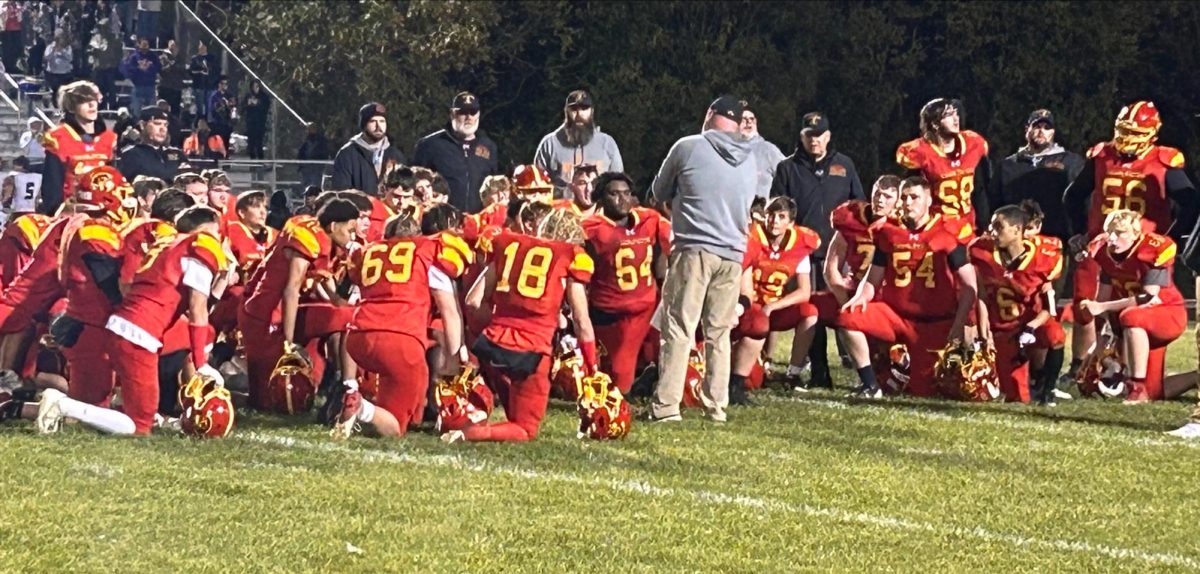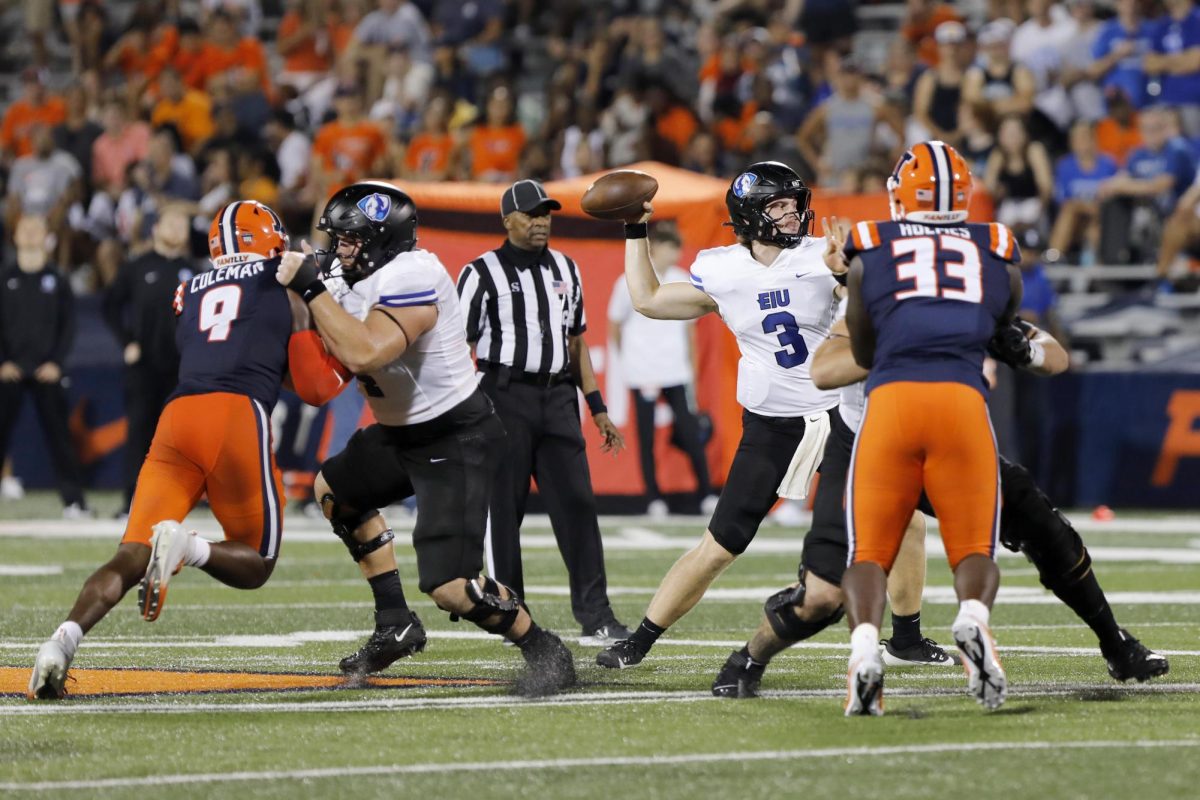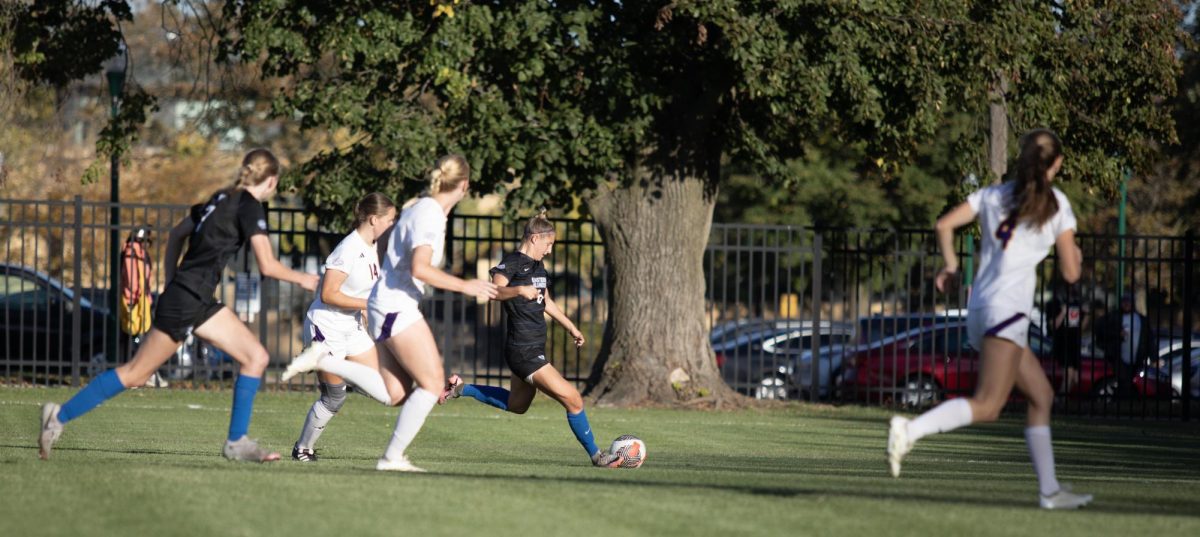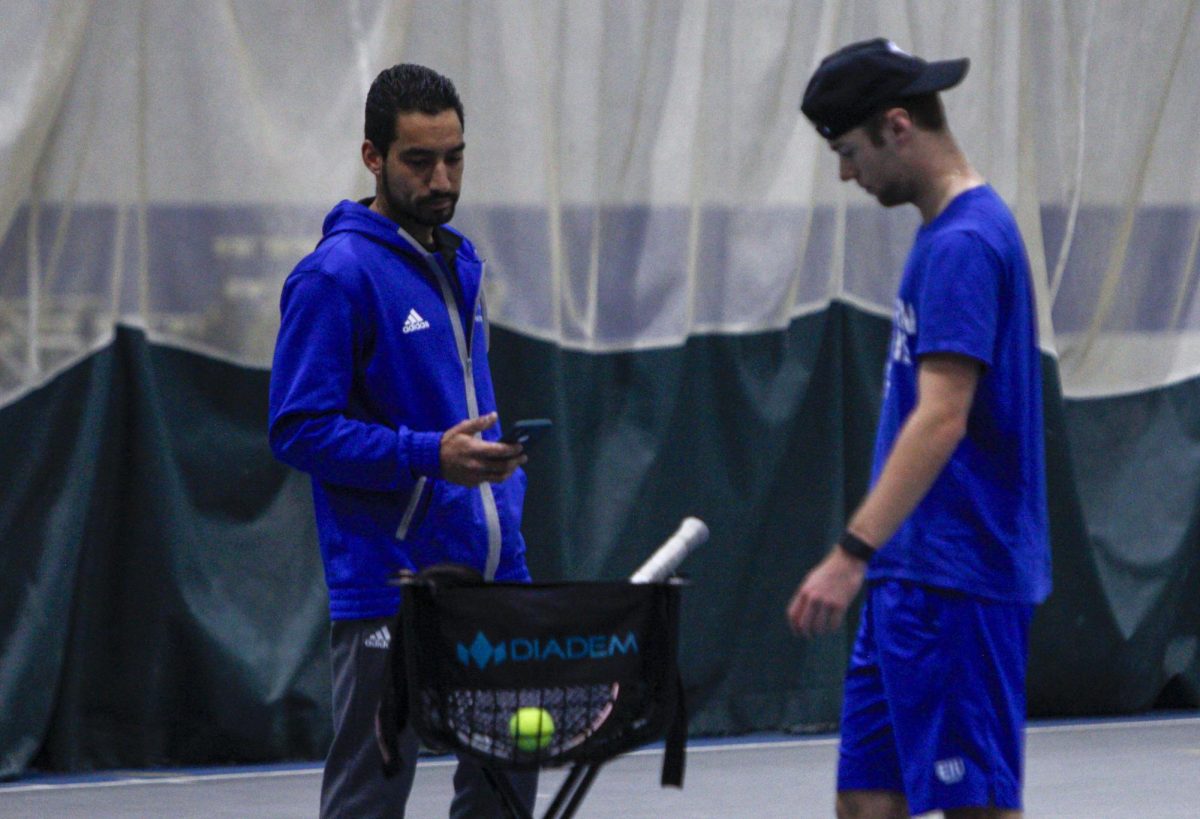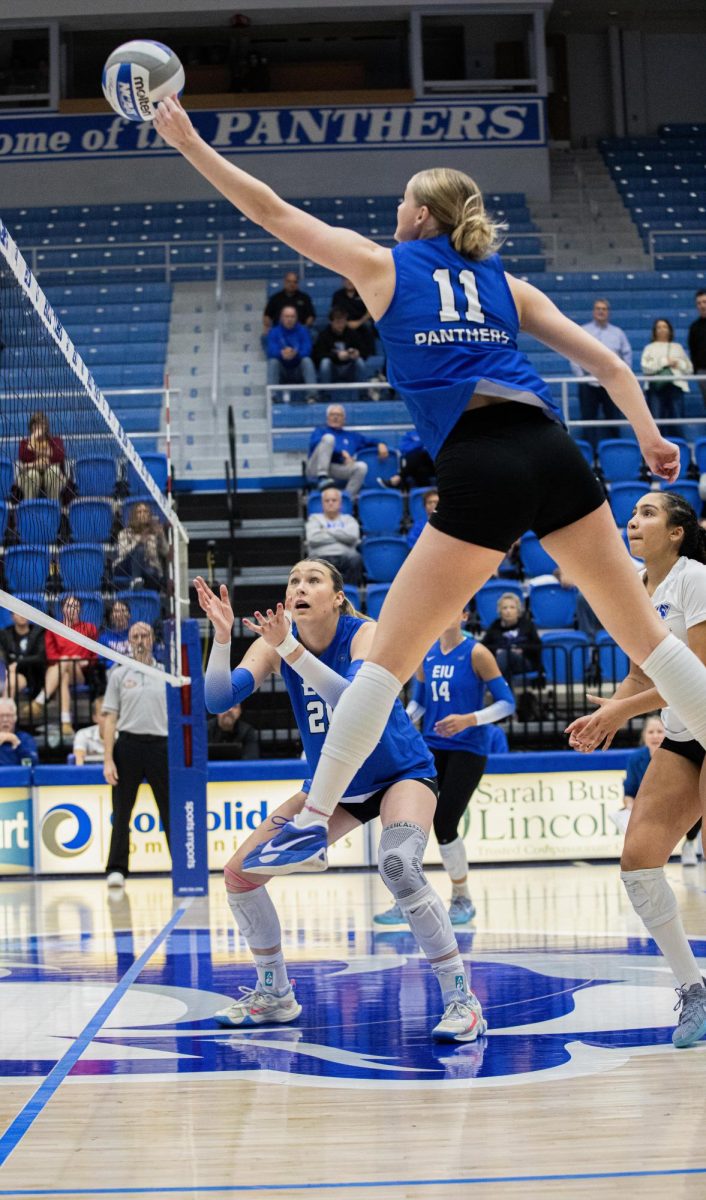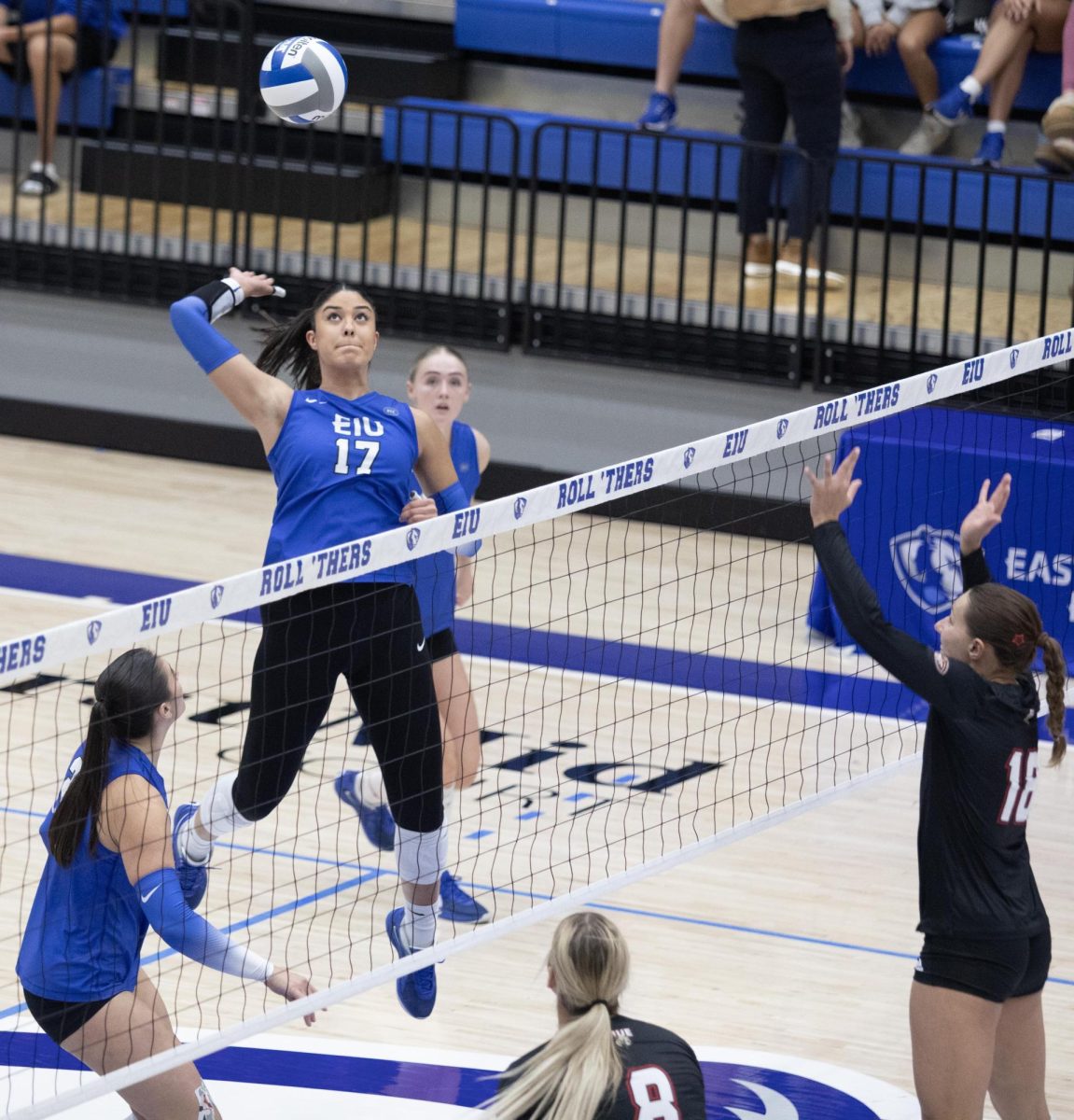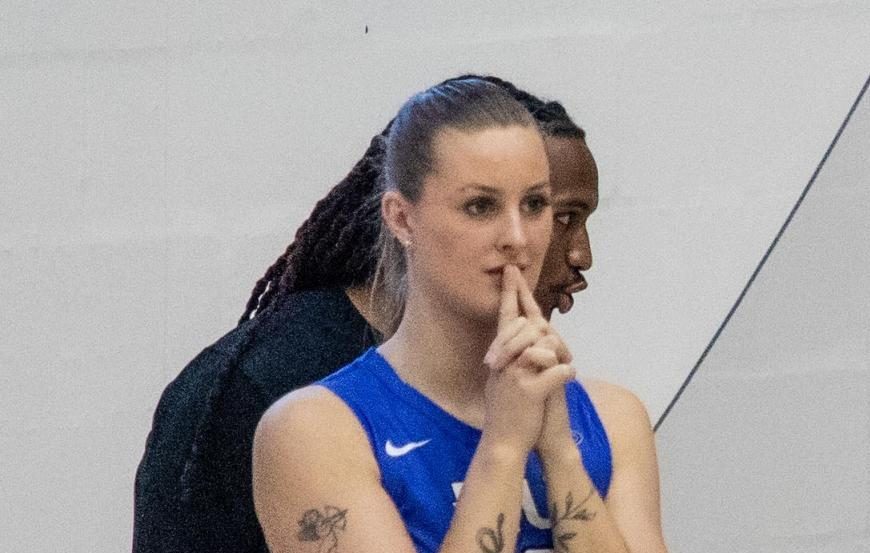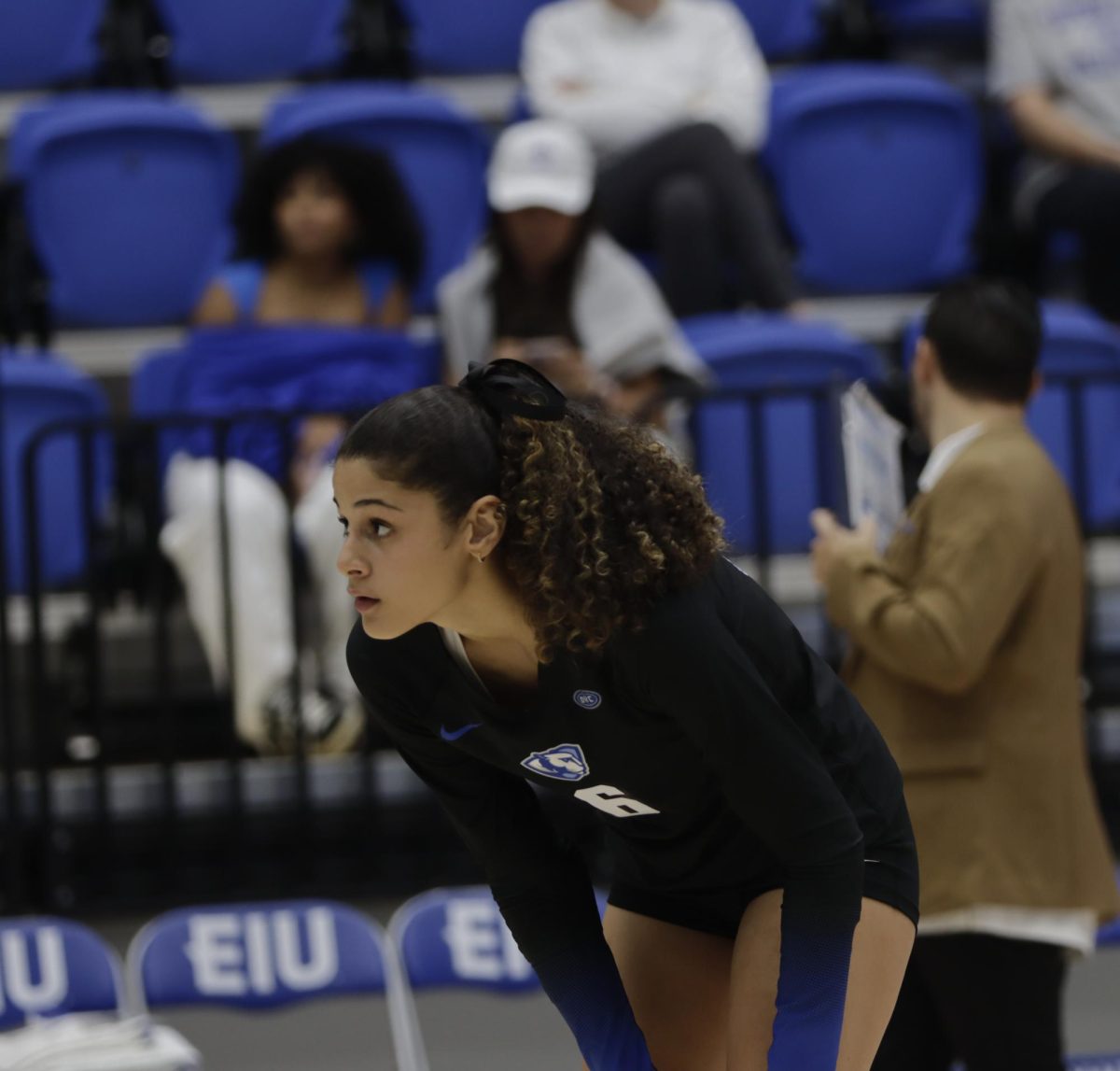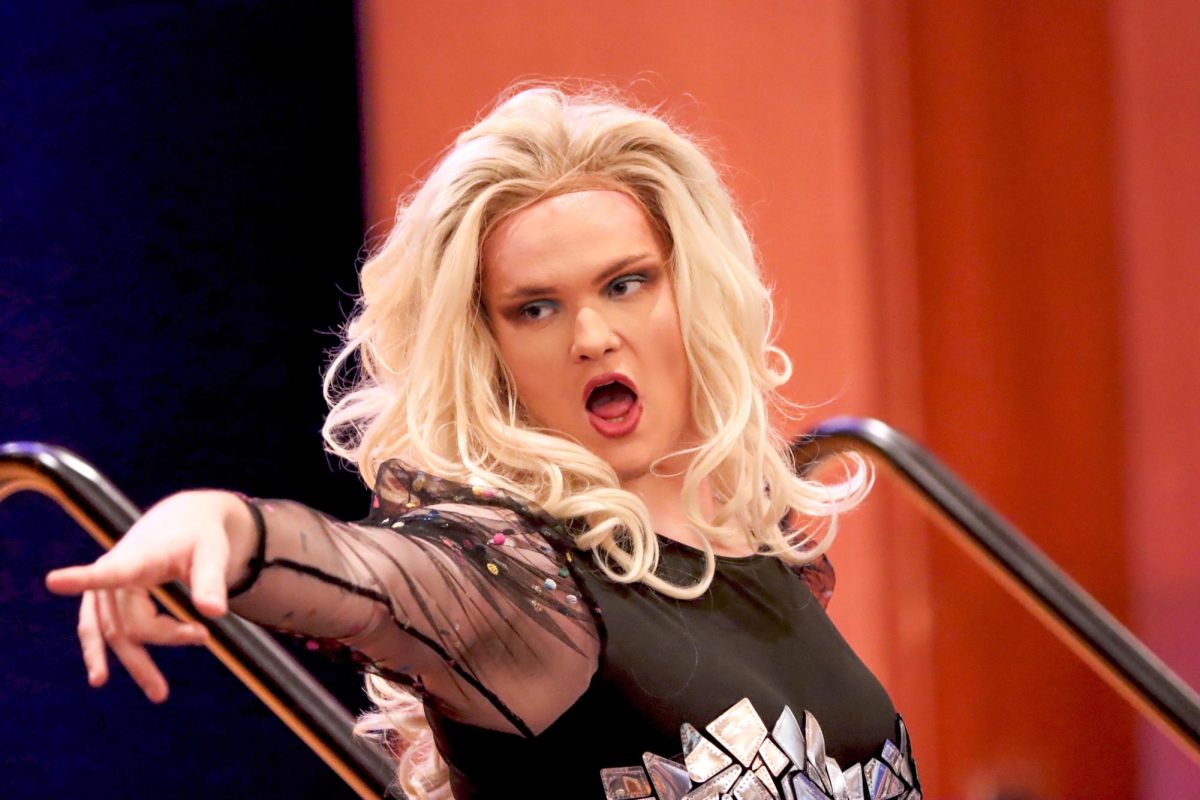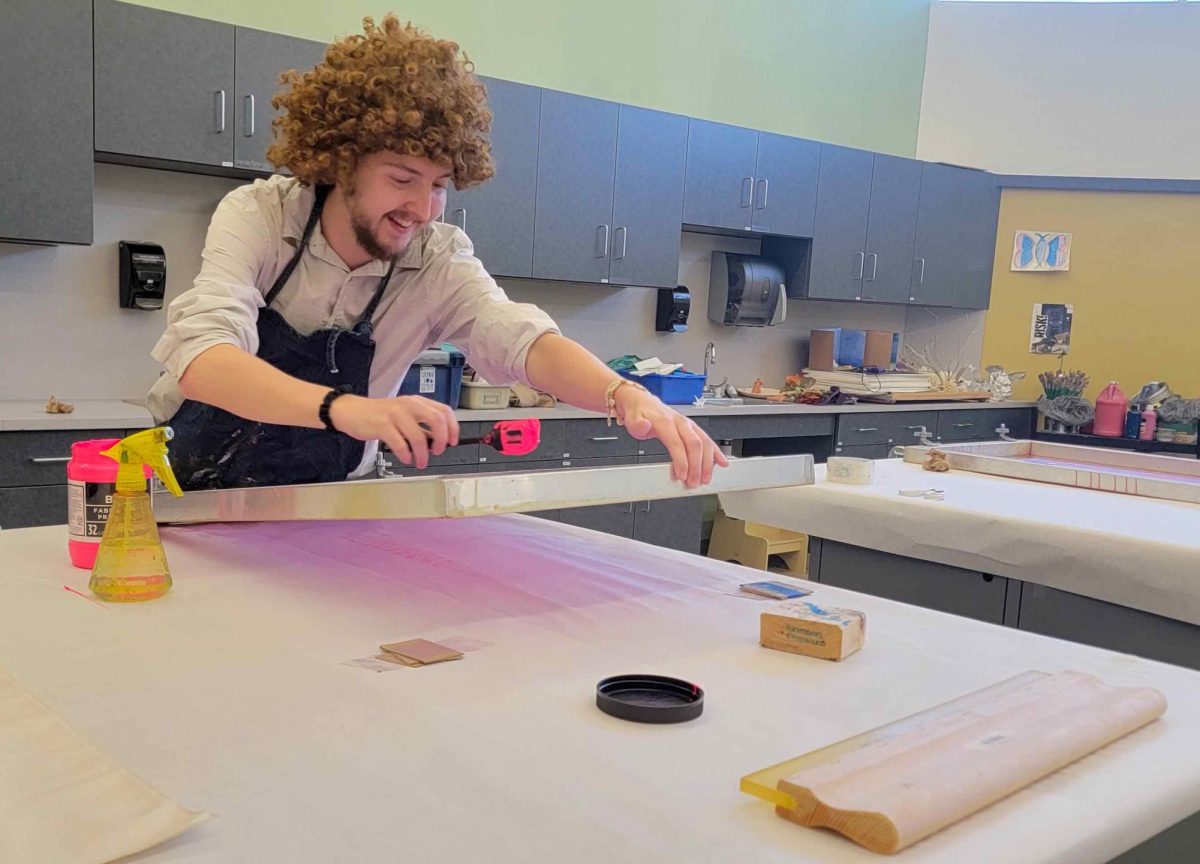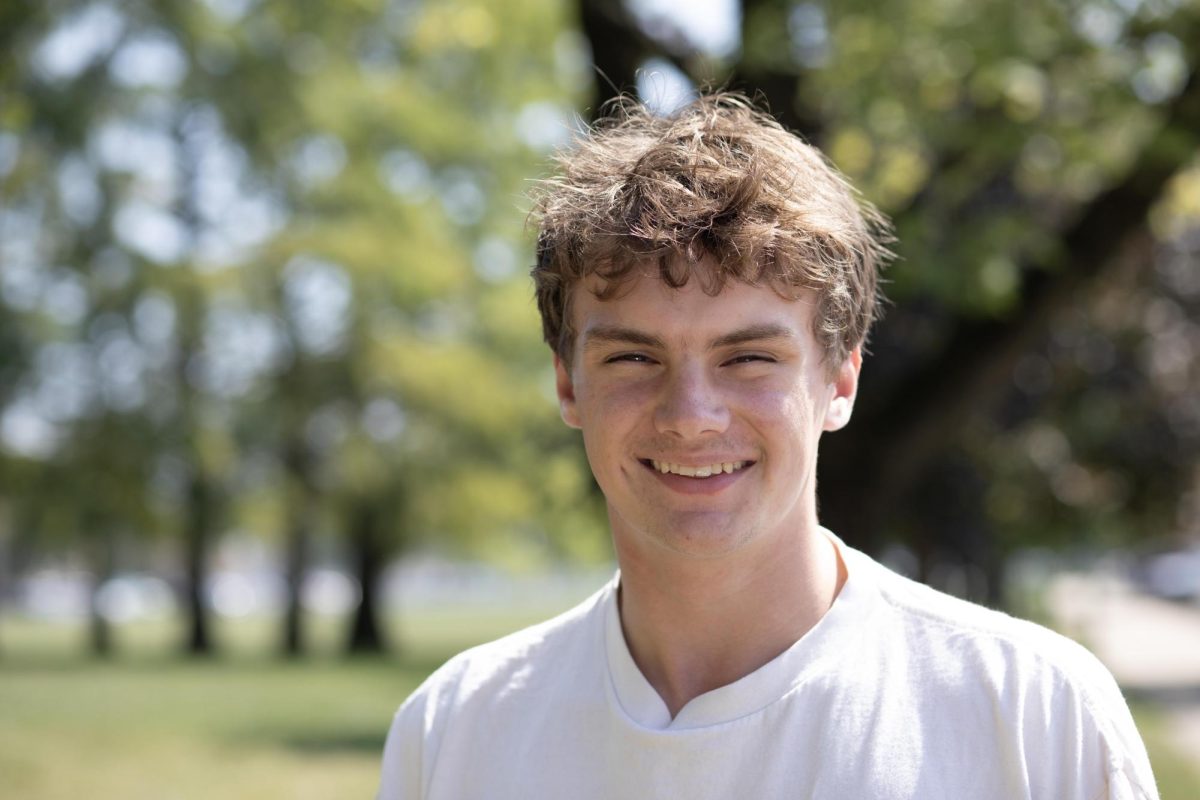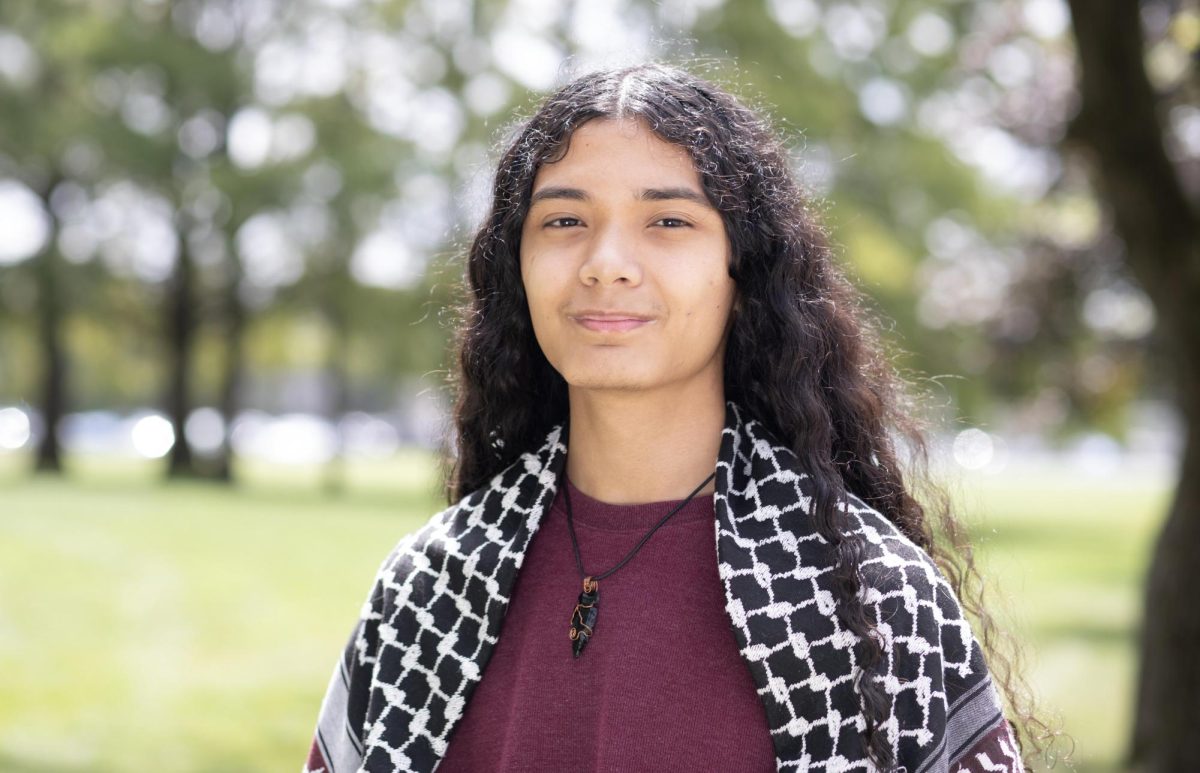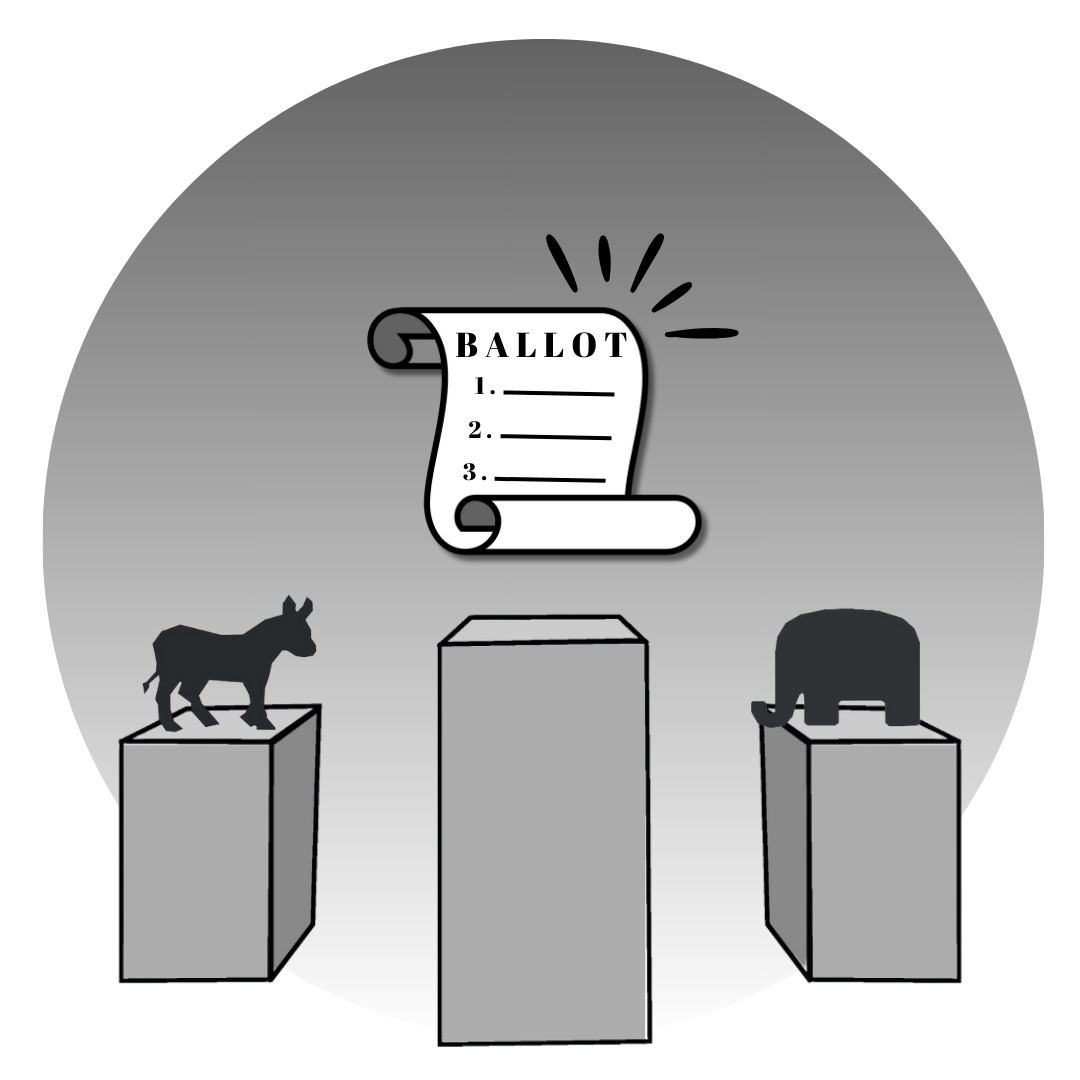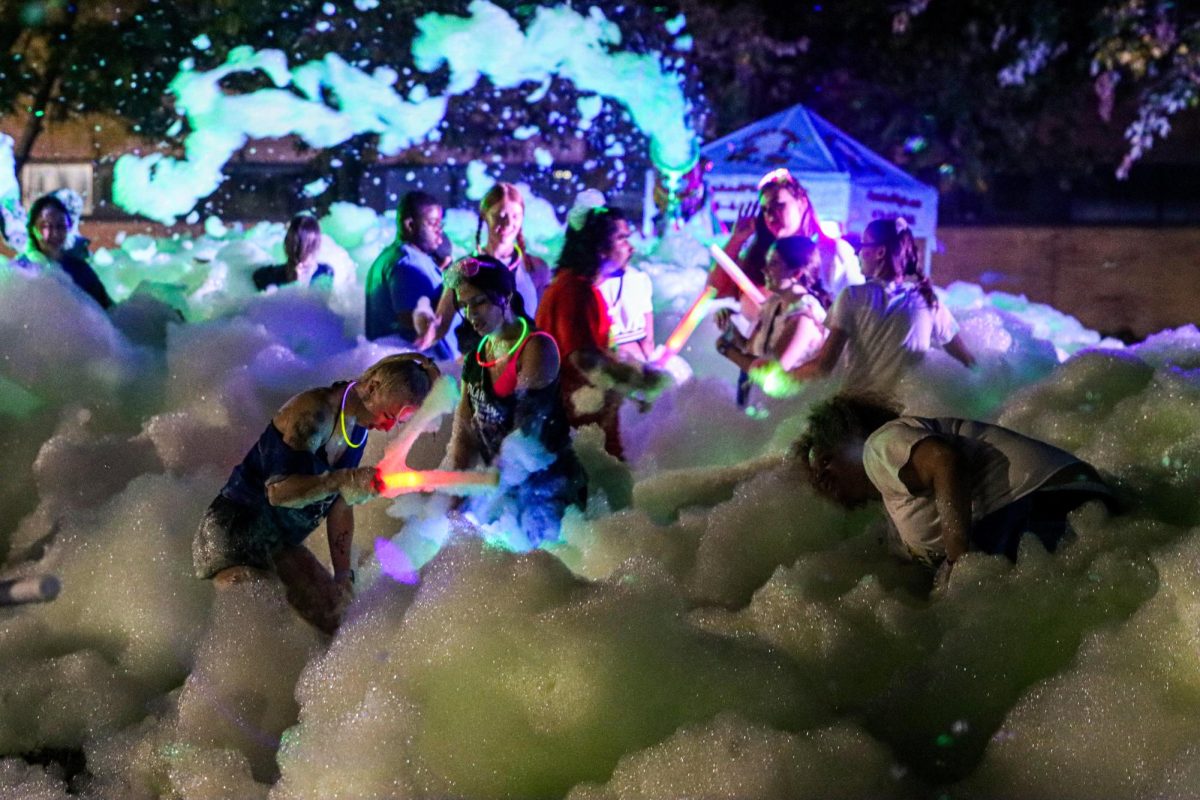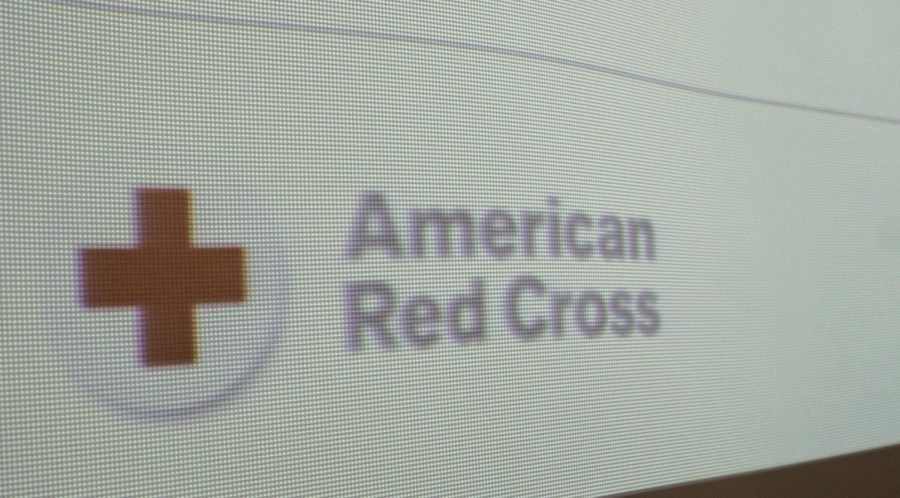Sickle cell presentation informs students to donate blood
Members of the Red Cross Julie Bly and Tara Fields presented information on Sickle Cell disease as part of African American Heritage Month Monday.
February 6, 2023
With the blood drive scheduled for Friday, there was a sickle cell presentation presentenced by American Red Cross.
The event took place from 4 p.m. to 5 p.m. in the Charleston-Mattoon room in the Martin Luther King Jr. University Union.
The presentation gave those in attendance information about sickle cell disease. African Americans have antigens that other races do not, so they have a better match at giving blood to a person with sickle cell, according to Julie Bly, a host and presenter at the event.
“A blood donation can help change the course and history of a patient in need,” Bly said. “Your blood is needed more than you think. When you give blood, you help save lives. Every blood donation is important and maintaining a diverse blood supply is a priority to the American Red Cross because of the importance to the patients.”
Sickle cell disease was described as a disease that affects red blood cells, which makes the cells hard and sickle shaped instead of soft and round, which they are supposed to be.
With this, the blood in bodies cannot flow as smoothly and cannot carry oxygen to the rest of the body.
Sickle cell effects people with ancestors that are from Africa, India, Central and South America, the Middle East, Caribbean, and the Mediterranean nations like Italy, Greece, France, and Turkey, according to Bly.
Tara Fields, another presenter at the event, said that ethnicity does not matter when donating blood, but more so the type of blood that someone has.
“Sickle cell disease affects as many as 100,000 people in the United States, most of them African Americans,” said Bly. “The trade for sickle cell disease is carried by one in 12 African Americans. Some African Americans have rare blood types that are unique for the African American community.”
Bly and Fields promoted the blood drive that is taking place on Friday. They said that they think the reason why people are not donating as much blood is because of COVID.
“I think that it’s from COVID because I mean, I can remember being on Lakeland’s campus prior to COVID and kids would stop and talk to you, and [now] we’re socially still shut down,” Fields said.
Mona Davenport, the dean of student success was also in attendance at the presentation. Davenport said that the amount of people donating blood has decreased since she was in school.
Davenport also thinks that students need a few more years and things will get back to normal.
“I think in two more years, it’ll be a little bit clearer of COVD,” Davenport said. “They’ve been in the house now for 17 months, so they’re used to being at home in a bed and a computer. I think just engagement in general hopefully will change them a little bit.”
She also said that she thinks the reason why people are not donating blood or getting vaccines are because they are afraid of needles.
The blood drive will take place Friday in MLK Jr., Union in the University Ballroom form 12 p.m. to 5 p.m.
Cam’ron Hardy can be reached at 581-2812 or at dennewsdesk@gmail.com.



